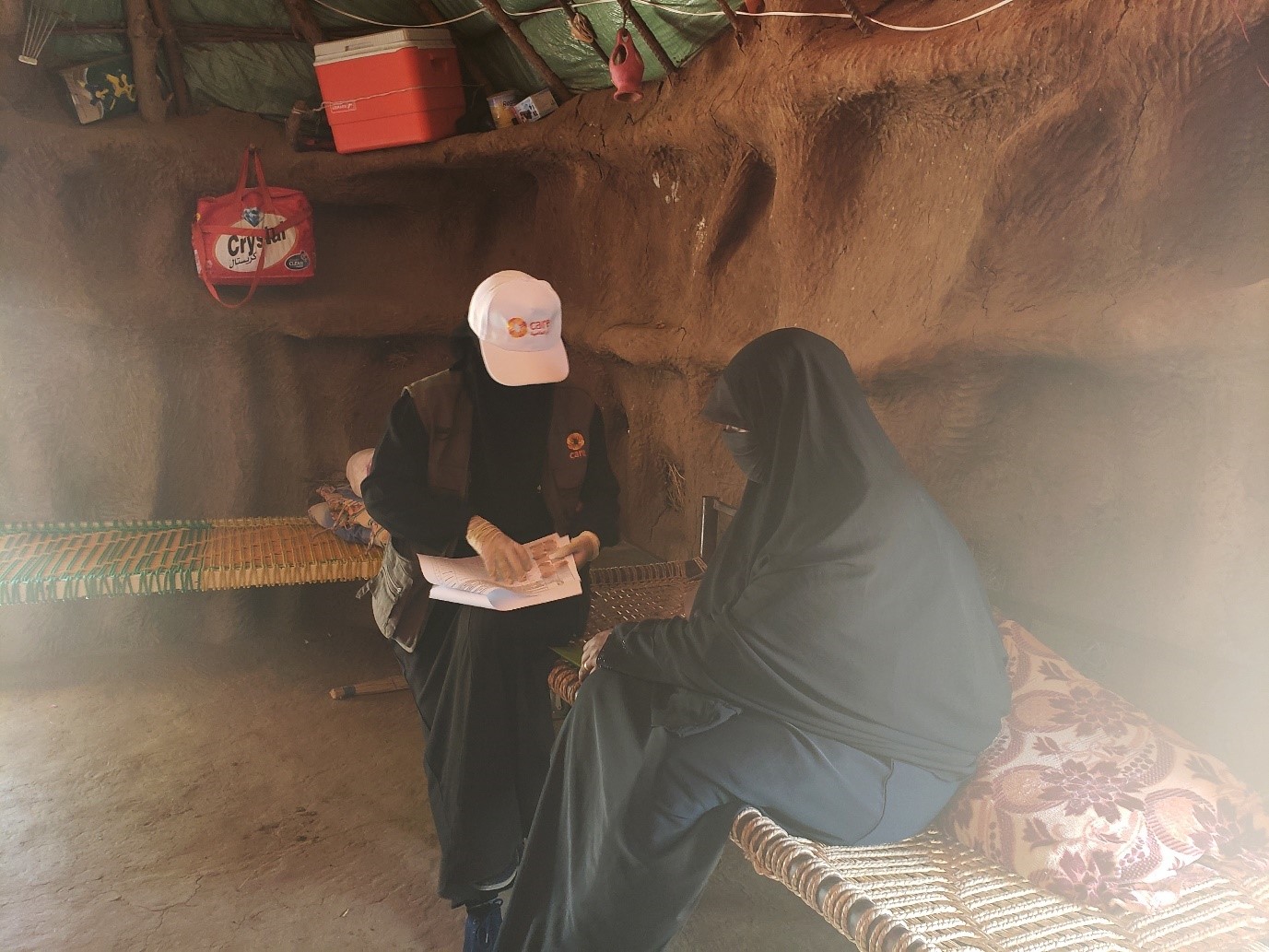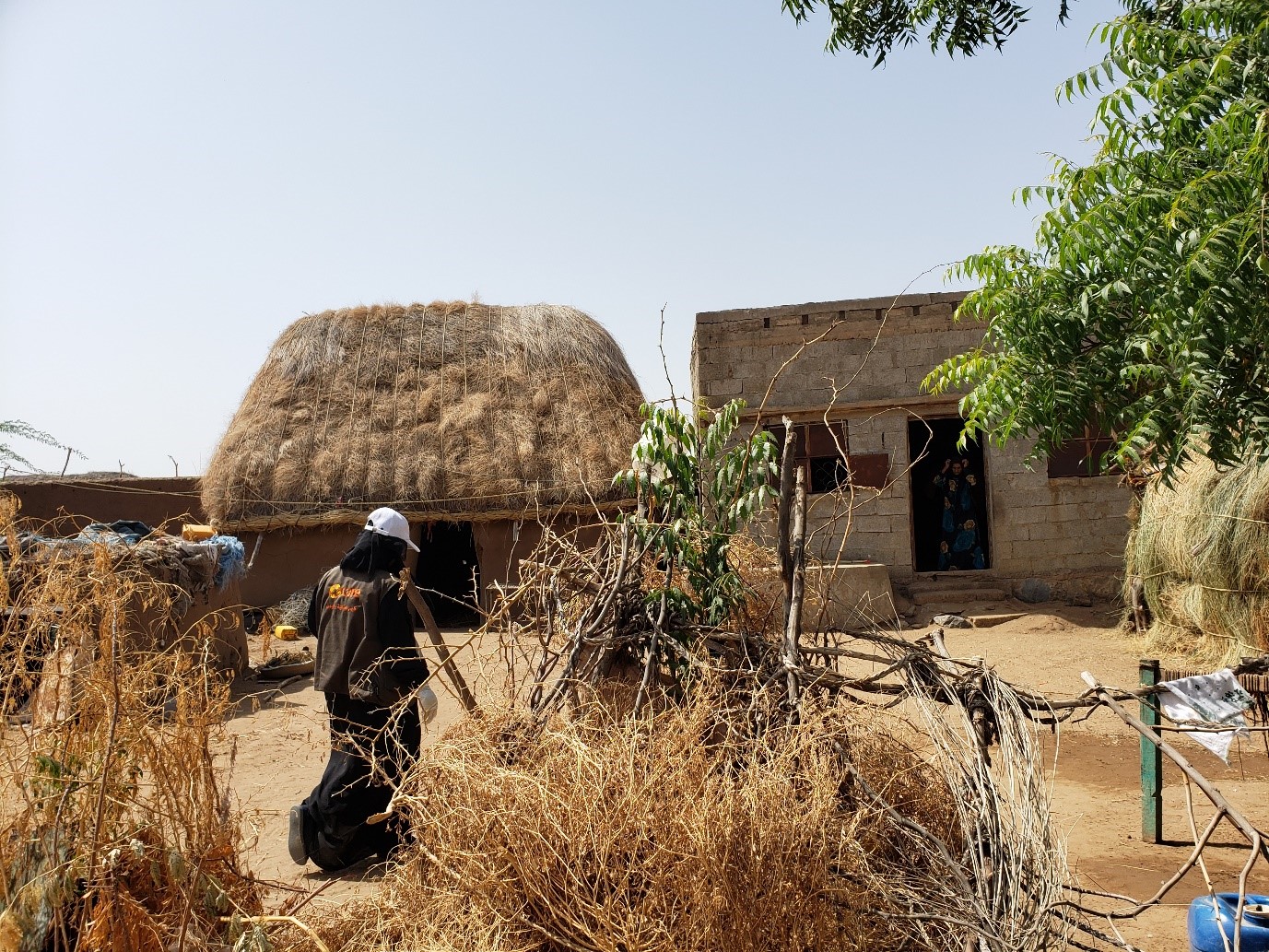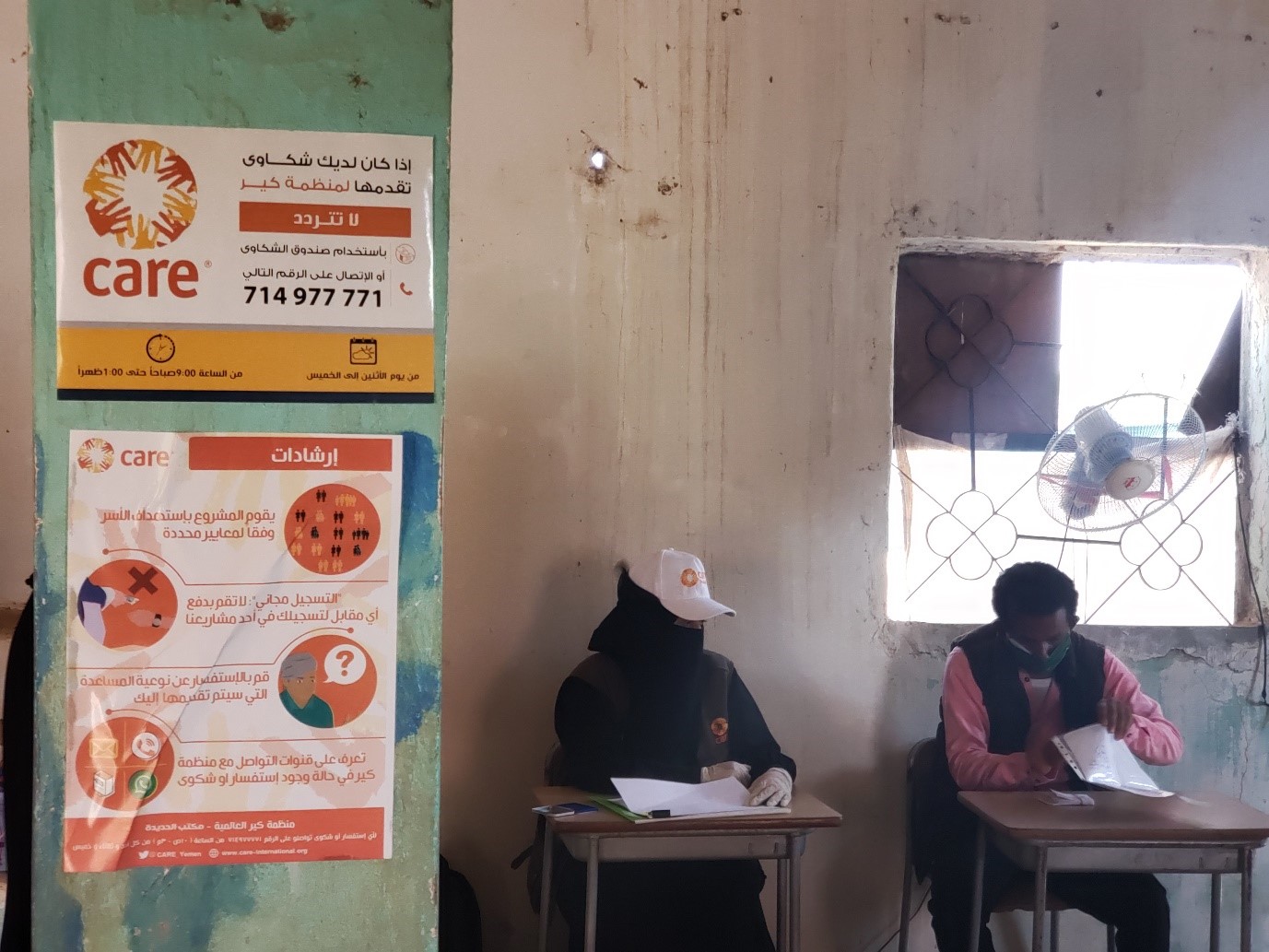After six years of complex crises, Yemen is currently facing a dire and precarious food security and nutrition situation whereby a total of 20.1 million Yemenis are food insecure, with 10 million people considered severely food insecure. Conflict and insecurity continue to be the main drivers of the spiraling food insecurity levels in the country.
In a humble tiny house made of mud and straw lives 38-year-old Aziza with her ten children – six girls and four boys – in a remote village in Bajel district in Hodeidah governorate.
“As you see, my family has been living in this hardship for years,” says Aziza. “Since the conflict escalated in Al Hodeidah, I wake up every morning wondering how and what to feed my children that day. My husband is a daily worker and he mostly can’t find any work or money to provide our basic needs.” Due to rheumatic disease, Aziza can’t go out and spends her days and nights lying on a shabby wooden bed.


